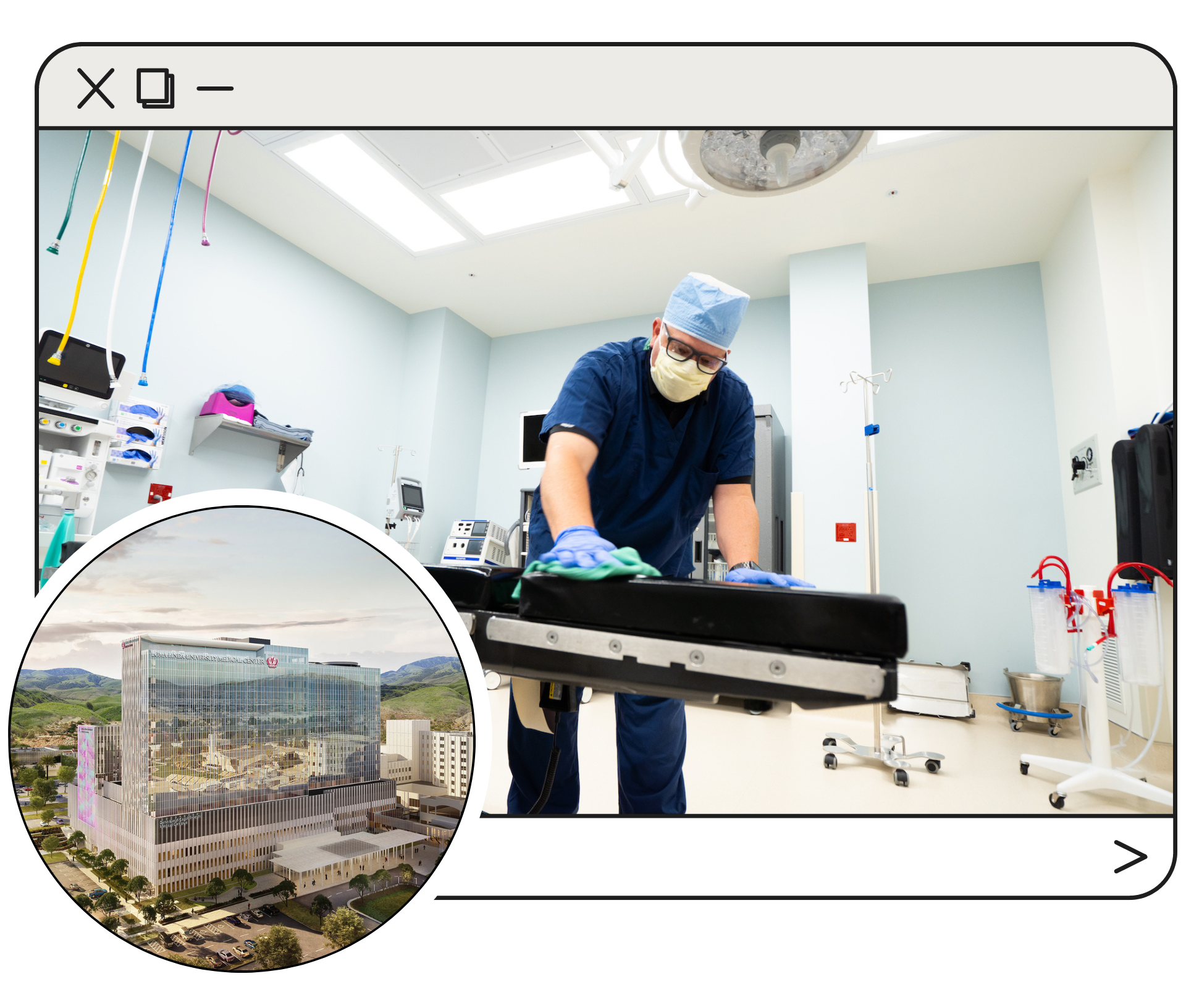
Hear From Our Customers Loma Linda University Health
See how we support one of the top rated academic medical centers in the nation.
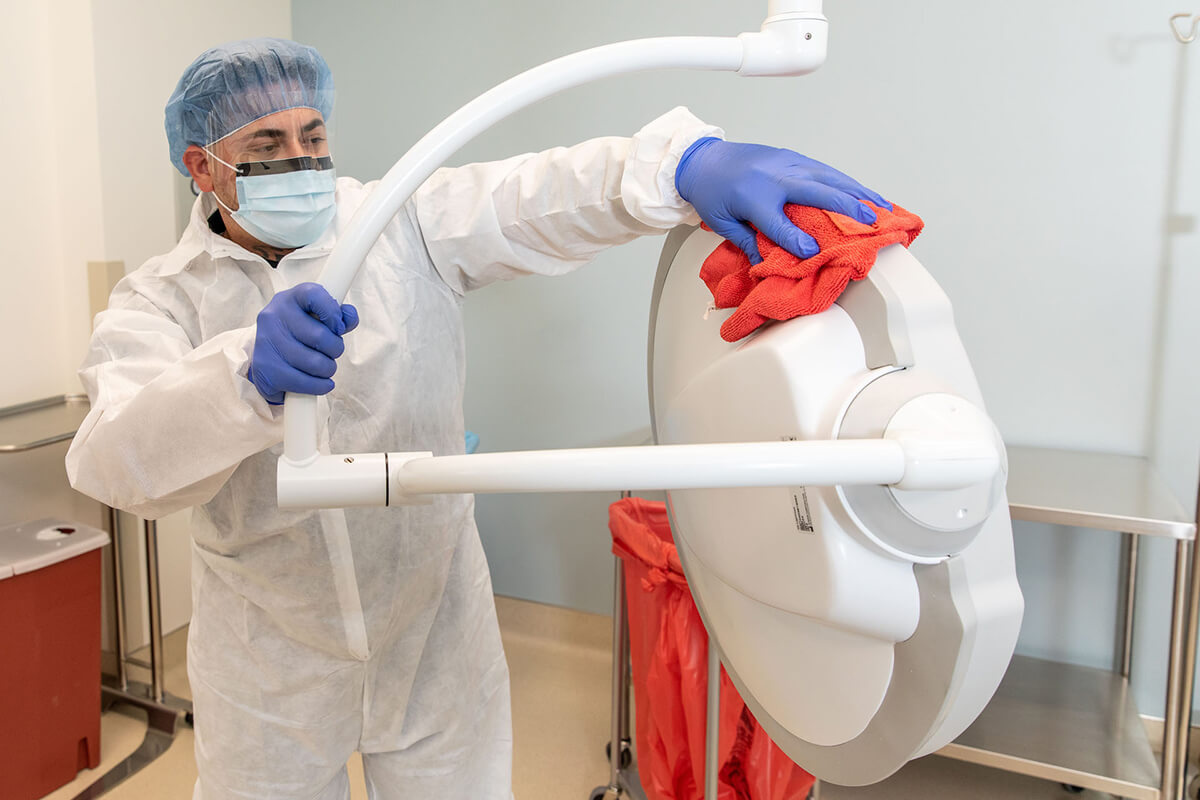
We’ve worked with a variety of healthcare providers including dialysis centers, clinics, hospitals, dentist offices, and more. Each practice is different, but one thing remains the same–the health and safety of patients and staff members reign supreme.
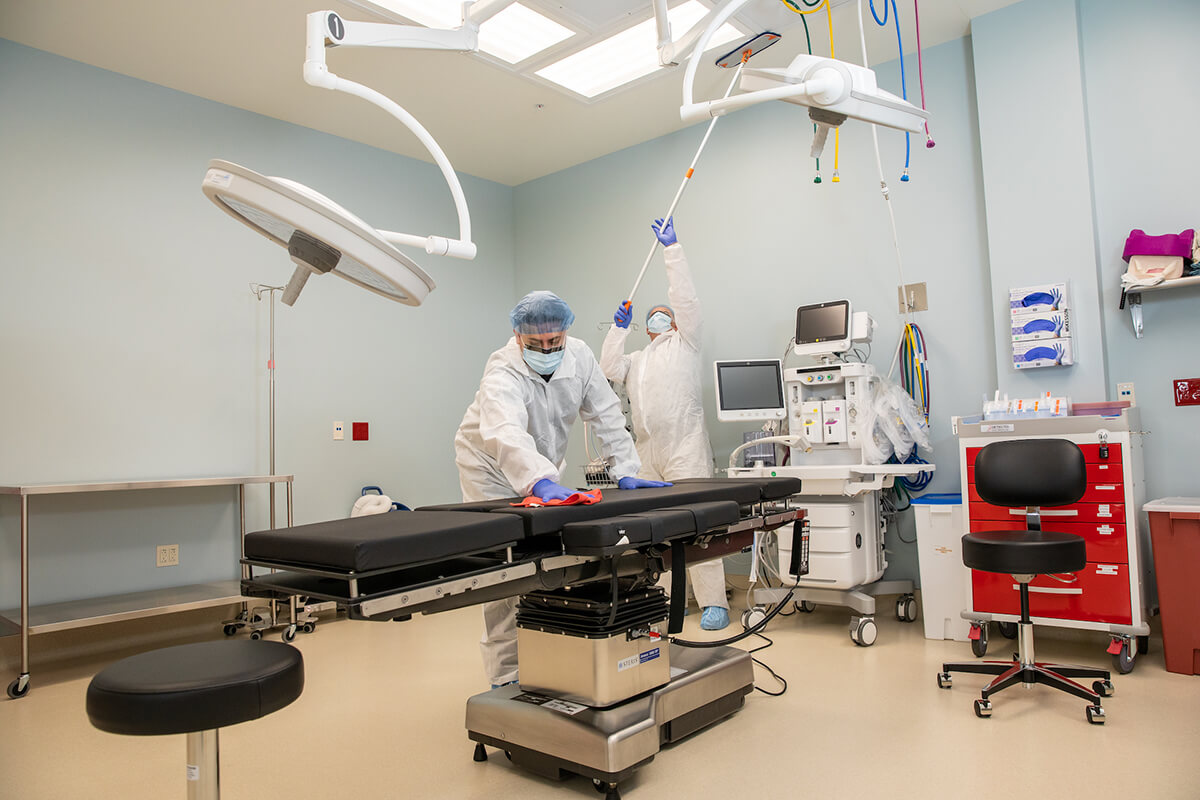
As is saving money and reducing waste. Our crews are trained in operation and patient room cleaning, chemical safety, blood-borne pathogen awareness, medical and biohazardous waste disposal and disinfection techniques. We can work closely with your healthcare facility to develop a plan that is safe and effective. Your patients will notice and feel the difference.
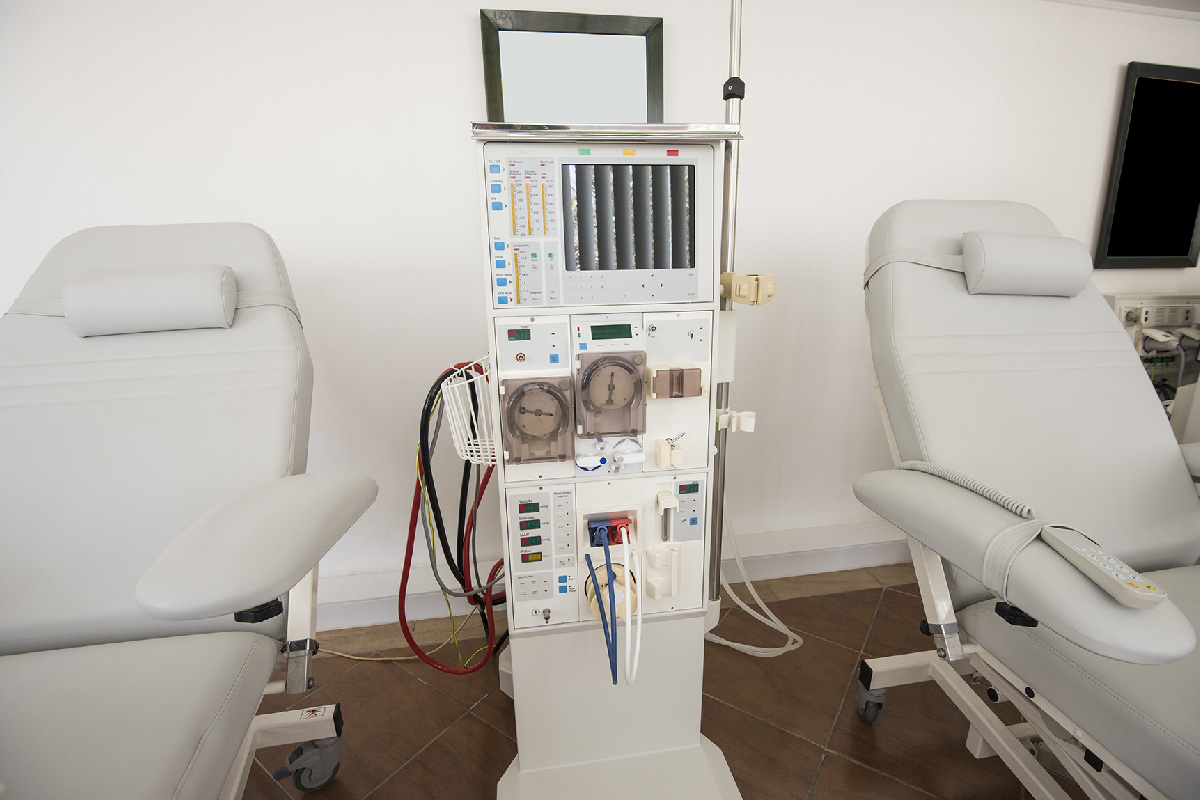
Dialysis Centers
Hemodialysis patients are at great risk of infection because treatment requires frequent use of catheters and needles. Disinfection of commonly used tools is important, but these tools are only as clean as their environment. Patient safety is reliant on a clean and disinfected facility. Hiring a professional means less distractions that could cause medication errors and patient falls–two major causes of infections in dialysis centers.

Hospitals
Hospitals are exposed to a wide range of pathogens on a daily basis. While cold and flu viruses can live on a surface anywhere from a few seconds to 48 hours, bacteria can live on a surface for months. Regular cleaning with the right products is imperative to preventing the spread of infection and illness. The OctoClean program consists of specialized training, infection control, hospital-grade disinfectants, state-of-the-art equipment and a focus on touch surface disinfection.
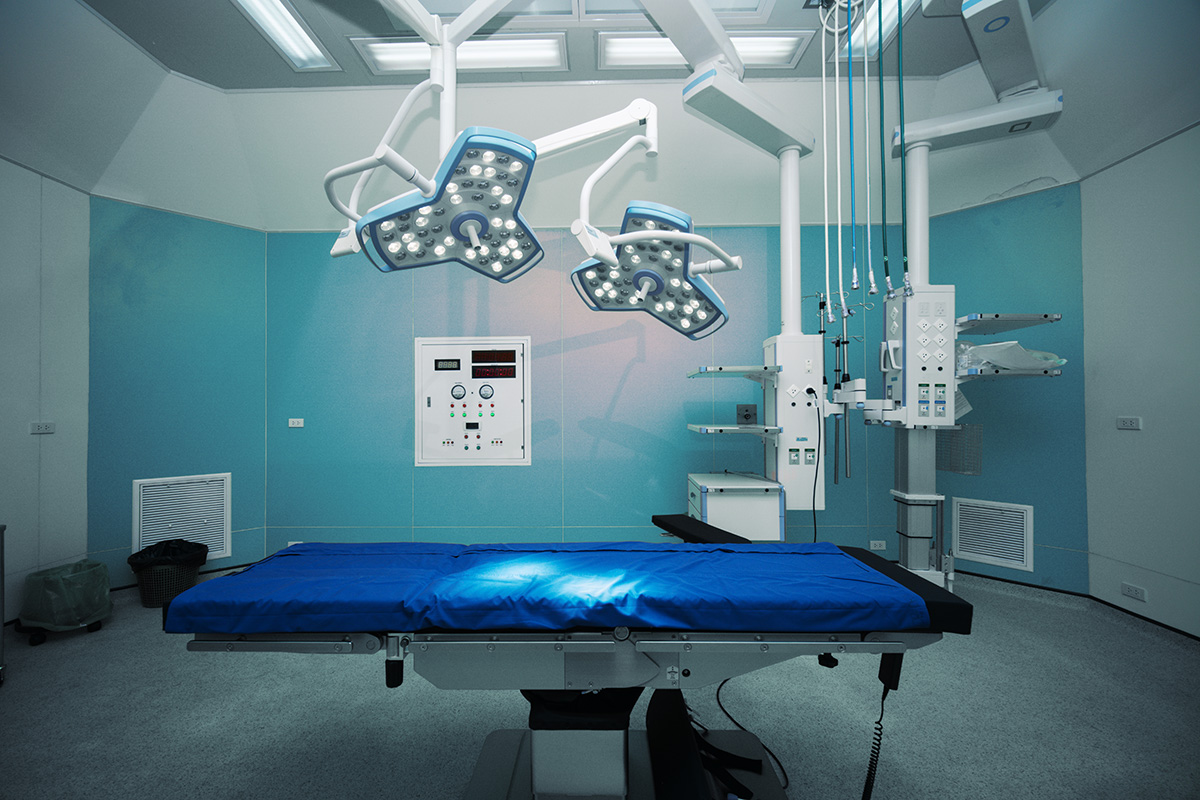
Surgery/Outpatient Centers
Healthcare acquired infections (HAIs) are no longer confined to the hospital environment. Recently, many reported outbreaks have been linked to outpatient settings and attributed to non-adherence to recommended infection-prevention procedures. Cleaning a medical office requires experienced, specialized training and the proper equipment that goes above and beyond basic general janitorial cleaning.
Infection control at hospitals and surgery centers begins with an environmental services (EVS) program. While it is true that cleaning methods are important to creating a healthy facility, many fail to realize that HAIs often occur due to a lack of communication. Without a team dedicated to protecting patient health and safety, there is no accountability. It is our belief that hospitals and EVS teams need to work together to communicate cleaning standards that are both attainable and effective.
Get Environmental Services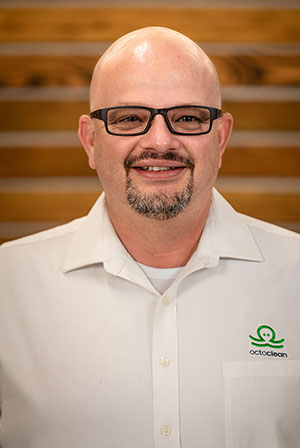
Our EVS Director Greg Stowe overlooks all operations to make sure health code standards are met at all times. He regularly attends annual training seminars regulated by the Environmental Protection Agency (EPA) and the Operational Safety and Health Administration (OSHA). Greg teaches EVS technicians to understand safety procedures from a personal standpoint. It is important to create safe conditions for patients, but equally important to follow standards that protect the safety of our team.
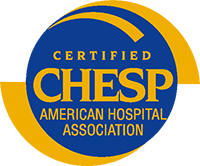

See how we support one of the top rated academic medical centers in the nation.
Hospital grade disinfectants clean and sanitize surfaces while simultaneously reducing the risk of infections. According to the Environmental Protection Agency (EPA), a hospital-grade disinfectant kills three specific types of germs: Staph, Pseudomonas and Salmonella. These 3 pathogens cover the broad scope of germ killing that is required in hospital and healthcare facilities.
Depending on the facility’s rules and regulations, our franchise owners and employees are required to pass two stepTB testing, a physical clearance, drug testing and background checks before they receive clearance to work in any healthcare setting. If immunization records are needed, we are happy to provide them. While cleaning, our staff is required to use appropriate PPE per regulations. Each member is equipped with a list of checkpoints that must be disinfected to ensure no surface is missed.
“Clean” in an office is different from clean in a hospital. Unlike an office, a hospital is bombarded by a variety of different pathogens on a daily basis. Hospitals are also filled with people who have immune systems that are already compromised. Ensuring that high touch areas are both clean and thoroughly disinfected is extremely important to preventing the spread of sickness and infections. While an office may not require around the clock cleaning, a hospital often requires multiple day porters to clean up spillages as needed.